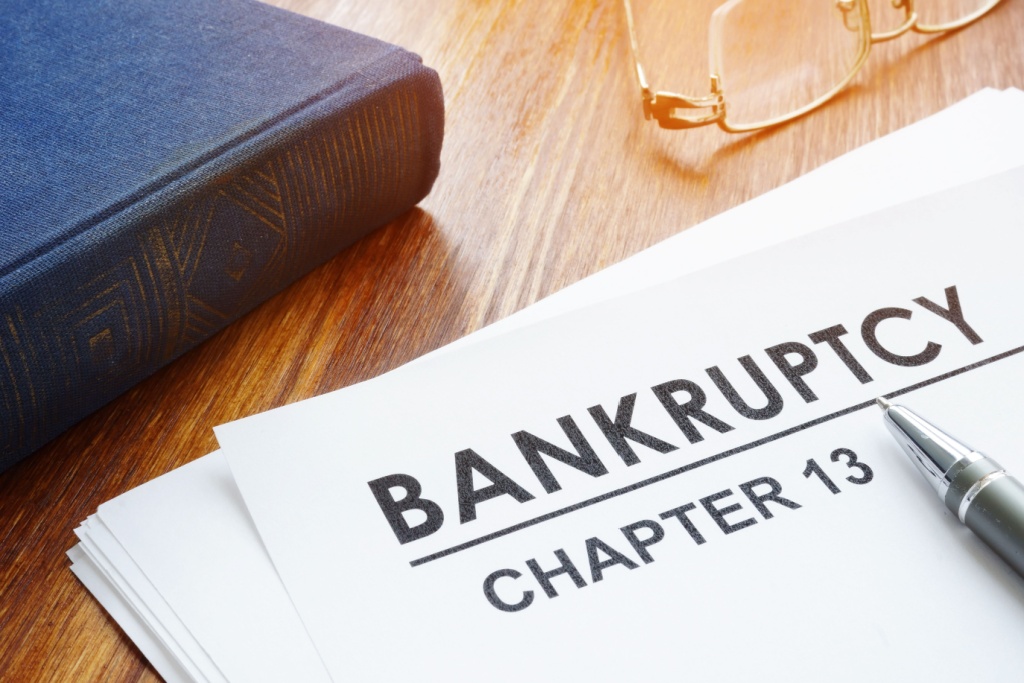Facing overwhelming debt can be stressful, and for Californians struggling to stay afloat, Chapter 13 bankruptcy might be a viable option. Unlike Chapter 7, which liquidates assets to pay creditors, Chapter 13 focuses on reorganization. Let’s delve into how Chapter 13 bankruptcy works in California.
Who Can File for Chapter 13?
Chapter 13 is ideal for individuals with a steady income who want to keep their property, typically a car or a house. California has generous exemptions that allow you to protect assets like your primary residence and vehicle equity up to a certain amount.
There are, however, limitations. You cannot file for Chapter 13 if your unsecured debts exceed a specific limit set by the U.S. Bankruptcy Code, and you must not have filed for bankruptcy too recently under either Chapter 7 or 13.

The Chapter 13 Process in California
The California bankruptcy process involves several key steps:
- Credit Counseling: Before filing, you must complete a credit counseling course from a government-approved agency. This course educates you on financial management and explores alternatives to bankruptcy.
- Means Test: The means test is a financial assessment to determine if Chapter 13 is suitable. It compares your income to the median income for your household size in California. If your income falls below the median, your plan can be shorter, typically three years.
- Developing a Repayment Plan: With the help of a bankruptcy attorney (highly recommended), you’ll create a plan to repay your creditors over a three-to-five-year period. The plan outlines how you will allocate your income to pay off all or a portion of your debts, including:
- Secured Debts: These debts involve collateral, such as your mortgage or car loan. Your plan will propose catching up on missed payments and continuing regular payments throughout the plan.
- Unsecured Debts: These debts lack collateral, like credit card debt or medical bills. The plan might propose paying a portion of these debts in full, or they might be partially or entirely discharged (forgiven) upon successful completion of the plan.
- Filing the Petition: Once the plan is finalized, your attorney will file it with the bankruptcy court in the district where you reside.
- Creditor Meeting: The court will hold a meeting where you and your representative (usually your attorney) will present the plan to your creditors. Creditors have an opportunity to object to the plan, but the court ultimately decides if it’s approved.
- Plan Confirmation and Repayment: If the court approves your plan, you’ll make monthly payments to a court-appointed trustee who distributes the funds to your creditors according to the plan.
- Plan Completion: After successfully completing your repayment plan, the court will discharge any remaining eligible unsecured debts. This essentially means you’re no longer legally obligated to pay them.
Benefits of Chapter 13 in California
- Save Your Property: Chapter 13 allows you to keep your car and house, as long as you stay current on secured debts within the plan.
- Stop Creditor Harassment: Once you file, creditors are legally prohibited from contacting you directly regarding collection efforts.
- Debt Reorganization: You get a structured plan to address your debts and work towards a fresh financial start.
- Potential Debt Forgiveness: A portion of your unsecured debts might be forgiven upon successful completion of the plan.
Things to Consider
- Legal Fees: Attorney fees are associated with filing for Chapter 13 bankruptcy.
- Credit Impact: Bankruptcy will stay on your credit report for up to seven years, potentially impacting your ability to secure loans or lines of credit.
- Strict Adherence: You must strictly adhere to your repayment plan throughout the three-to-five-year period. Failing to do so could lead to dismissal of the case.
Conclusion
Chapter 13 bankruptcy in California offers a solution for individuals struggling with overwhelming debt who want to keep their property. If you’re considering this path, consulting with a qualified bankruptcy attorney is crucial. They can guide you through the process, assess your eligibility, and ensure you’re making the best decision for your financial situation. At Unruh Law, we understand the complexities of Chapter 13 Bankruptcy. Get in touch with us today if you have questions.
